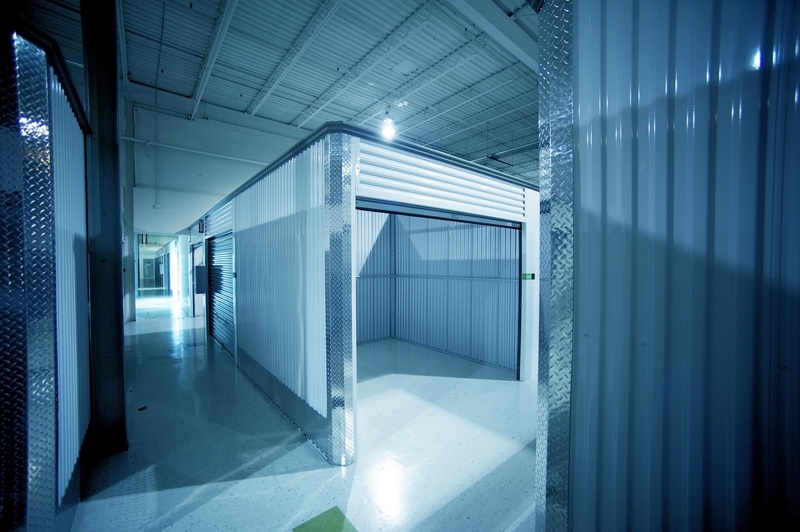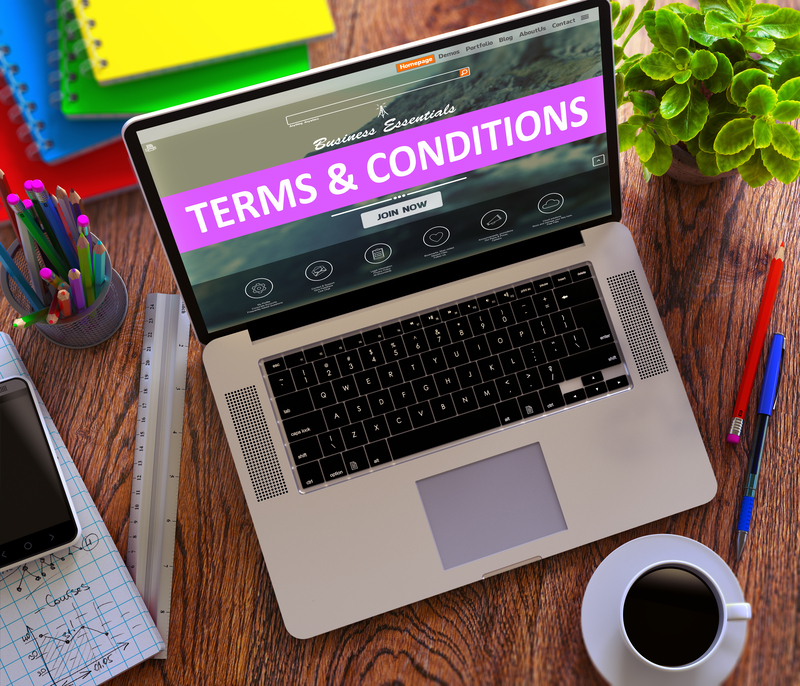Why DIY and Piano Moving Are Not a Match Made in Heaven
Posted on 25/06/2025
Pianos are magnificent instruments, treasured by families and musicians alike. Moving a piano, however, is a complex task that goes miles beyond shifting typical household furniture. With the rise of do-it-yourself solutions for nearly every challenge, many individuals feel inspired to take on the daunting responsibility of moving a piano on their own. But is DIY piano moving really a good idea?
This comprehensive article highlights why DIY and piano moving are not a match made in heaven, exploring the risks, real-life costs, and the critical advantages of hiring professional piano movers. Whether you own a grand, upright, or digital piano, understanding the challenges of piano relocation can save you money, time, and potentially, heartache.
The Unique Nature of Pianos
Pianos are not just ordinary pieces of furniture. They are delicate, heavy, and intricately engineered musical instruments. Moving a piano requires much more than just physical strength--it demands specialized knowledge, expertise, and equipment.
Understanding the Complexity
- Weight and Size: Pianos can weigh anywhere from 300 pounds (upright piano) to over 1,000 pounds (concert grand piano).
- Delicate Components: Over 10,000 moving parts, sensitive strings, and hammers make up a piano's internal structure.
- Irreplaceable Value: Many pianos are invaluable due to their monetary, sentimental, or historical worth.
The very features that allow pianos to produce incomparable sound also make them incredibly sensitive to movement and force.

The Hidden Dangers of DIY Piano Moving
1. Physical Risks to Movers
Attempting DIY piano moving exposes novice movers to serious physical risks:
- Back and Muscle Injuries: Improper lifting techniques can lead to severe, sometimes permanent damage.
- Crushed Fingers and Toes: Without the right handling, heavy instruments can slip or tip unexpectedly.
- Risk of Falls: Navigating stairs or tight corners with a heavy piano puts you at risk of falls and collisions.
2. Property Damage
The average home is not equipped for safe piano moving. Common mishaps include:
- Scratched Floors: Dragging or dropping a piano can gouge expensive hardwood or tile flooring.
- Damaged Walls and Entryways: Bulky pianos are notorious for scuffing, denting, or even cracking walls, banisters, and door frames.
- Broken Steps or Railings: The weight of the piano may exceed what your home's infrastructure can safely handle.
3. Piano Damage
Perhaps the biggest reason why DIY and piano moving are not compatible is the high risk of damaging the instrument itself:
- Misaligned Keys or Damaged Strings: Even slight tumbles or bumps can throw off a piano's delicate internal alignment.
- Smashed or Chipped Exteriors: One wrong move can leave noticeable cosmetic damage.
- Permanently Altered Sound Quality: Pianos are precision-tuned instruments. Structural damage can ruin their rich sound.
Common Misconceptions About DIY Piano Move
"It Will Save Money"
The most common motivation behind DIY piano moving is to save on professional movers' fees. However, if you consider the medical bills, repair costs, and risk of irreversible damage, moving pianos yourself can end up being far more expensive.
"I Have Enough Help"
Enlisting a few friends may seem sufficient, but piano moving requires more than numbers. Professional piano movers use specialized tools such as skids, ramps, custom dollies, and harnesses. Without these and without expert coordination, the risk factor rises--for everyone involved.
"All You Need is Strength"
While pianos are undeniably heavy, strength alone is not enough. Movers must also possess experience, strategic planning skills, and an understanding of how to balance and angle the instrument.
The Essential Skills of Professional Piano Movers
So, why hire professional piano movers? Here's what the pros bring to the table:
- Specialized Training: Learning the physics of piano transport, including how to maneuver in tight spaces with minimal risk.
- Proper Equipment: Heavy-duty dollies, moving pads, stair-climbing machines, and protective covers are standard gear.
- Insurance Coverage: Professional movers are insured, protecting your piano and home from accidental damage.
- Precision Handling: Movers understand how to disassemble, transport, and reassemble pianos safely.
- Long-Term Savings: Preventing disaster is always cheaper than paying for repairs or medical emergencies.
Piano Moving Techniques: DIY Versus Professional
DIY Piano Moving Steps
- Recruit as many helpers as possible.
- Try to wrap the piano in makeshift padding--usually blankets or towels.
- Use basic dollies or attempt to lift it by hand.
- Struggle to guide it through narrow doorways, hallways, or up/down stairs.
- Constantly risk losing balance, scraping paint, or damaging the instrument.
Professional Piano Moving Process
- On-site assessment of the piano's size, weight, and the moving environment.
- Disassembly of removable parts (like legs, pedals, and music stands) for easier transport.
- Wrapping with industrial moving blankets and securing with straps.
- Placement on specialized piano skids or dollies designed to bear the instrument's full weight.
- Carefully coordinated movement through challenging spaces, using ramps and extra manpower as needed.
- Thorough reassembly and post-move inspection at the new location.
Financial Breakdown: DIY Costs vs. Professional Piano Movers
Assuming you're determined to save money, consider the following potential expenses with a do-it-yourself approach:
- Truck rental and moving supplies (straps, blankets, tools): $100-$300
- Damage to home interiors or landscaping: Repairs range from $200 to $2,000
- Piano repair/tuning after damage: $150-$1,000
- Medical expenses from possible injuries: Variable, sometimes thousands of dollars
- Lost value if your piano is irreparably damaged: Potentially priceless
By contrast, most professional piano movers charge a flat fee that includes labor, equipment, and *insurance*. In the majority of cases, this option is not just easier--it's more cost-effective over the long run.
Real-Life Cautionary Tales
Don't just take our word for it--numerous homeowners and musicians have learned the hard way that DIY piano moving is simply not worth the risk!
Case Study: The Upright Piano Disaster
When the Smith family decided to move their upright piano to their new house just several blocks away, they recruited relatives and rented a U-Haul. However, while maneuvering down their front steps, the piano slipped and fell, shattering a handrail and damaging two front porch steps. Worse yet, the interior tuning pegs loosened, resulting in a repair bill of over $700.
Case Study: The Grand Piano Ordeal
A professional pianist, eager to save on moving costs, attempted to transport her baby grand with the help of friends. Unfortunately, without proper tools, the piano's leg snapped during the process, forcing her to spend not only on repairs but also on expensive retuning and subsequent moving fees to clean up the initial mess.
Lessons Learned
- Inexperience often leads to easily avoidable mistakes.
- Initial cost savings are quickly overshadowed by repair and replacement costs.
- Piano moving should always be left to those with the right training and insurance.
The Role of Insurance in Piano Moves
One often overlooked benefit of hiring professional piano movers is comprehensive insurance coverage. Should anything happen during the moving process--be it accidental dropping, weather-related issues, or unforeseen events--professionally insured movers can compensate you. DIY movers, on the other hand, are fully liable for all accidents and damages.
How to Choose the Right Piano Moving Experts
Not all moving companies are qualified to handle piano relocation. Look for specialized piano movers with:
- Positive customer reviews and verifiable references
- Specific insurance for musical instruments
- Experience moving your particular type (upright, baby grand, grand, digital)
- Transparent pricing and clear service contracts
Pro-tip: Always request a free on-site estimate before booking. This ensures the movers understand your piano's weight, size, and the layout of both the pickup and destination locations.
What About Small Digital Keyboards?
While large acoustic pianos require specialized movers, owners of small, lightweight digital keyboards may be able to move these themselves. However, take care to secure and protect keys, pedals, and power adapters. Never attempt to move larger upright or grand pianos without professional assistance.
Final Verdict: Why DIY and Piano Moving Don't Mix
The temptation to save a dollar by moving a piano yourself is understandable, but the potential risks and hidden costs are simply too great. From protecting your valuable instrument, your property, and your physical well-being, professional piano movers offer unmatched expertise and security.
Choosing experts isn't just about convenience--it's the smartest way to preserve the beauty, function, and legacy of your precious piano.

Frequently Asked Questions
- Can I move my piano with just a few friends?
Even with several helpers, you lack the experience, equipment, and insurance that professionals provide. It's always safer and more reliable to hire experts in piano moving. - How much does it cost to hire a professional piano mover?
The average cost ranges from $200 to $700 depending on the type of piano, distance, and complexity. This is typically much less than the cost of repairs due to improper moving. - My piano isn't that old or expensive. Should I still hire a professional?
Absolutely. Even inexpensive or newer pianos are heavy, awkward, and fragile. Damage can happen in a split second.
Piano Moving: Leave It to the Pros!
The bottom line? DIY and piano moving are not a match made in heaven. Protect your instrument, home, and yourself by choosing professional piano movers for your next relocation. Your future self--and your piano--will thank you.
Latest Posts
Why DIY and Piano Moving Are Not a Match Made in Heaven
Transform Your Moving Experience to Be Stress-Free
Essential Move-Out Cleaning Tips for Every Room
